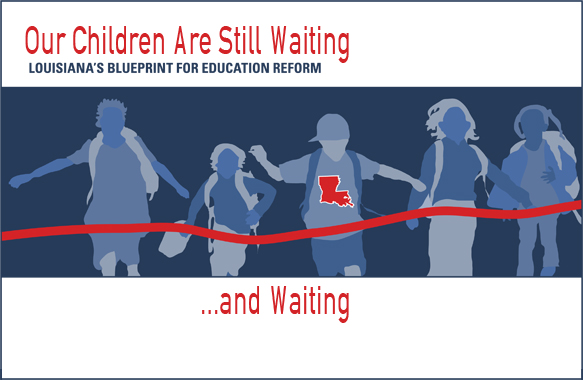By Amanda Gardner | Originally Published atCable News Network/Health.com. Thursday, June 14, 2012
(Health.com) — Obese children and teenagers face a slew of potential health problems as they get older, including an increased risk of diabetes, heart attacks, and certain cancers. As if that weren’t enough, obesity may harm young people’s long-term college and career prospects, too.
In recent years, an uneven yet growing body of research has suggested that obesity is associated with poorer academic performance beginning as early as kindergarten. Studies have variously found that obese students — and especially girls — tend to have lower test scores than their slimmer peers, are more likely to be held back a grade, and are less likely to go on to college.
The latest such study, published this week in the journal Child Development, followed 6,250 children from kindergarten through fifth grade and found that those who were obese throughout that period scored lower on math tests than non-obese children.
What’s more, this pattern held even after the researchers took into account extenuating factors that can influence both body size and test scores, such as family income, race, the mother’s education level and job status, and both parents’ expectations for the child’s performance in school.
Health.com: Working moms may mean overweight kids
“In boys and girls alike who entered kindergarten with weight problems, we saw these differences in math performances emerge at first grade, and the poor performance persisted through fifth grade,” says lead researcher Sara Gable, Ph.D., an associate professor of nutrition and exercise physiology at the University of Missouri-Columbia.
The study had some limitations, however, and the results revealed some potentially important inconsistencies with respect to gender and age. For instance, the link between obesity and test scores was weaker — or nonexistent, in the case of boys — if the children became obese in the third or fifth grade, as opposed to kindergarten.
Overall, though, the findings jibe with evidence stretching back more than a decade. “I think it’s been established that there’s a link between students’ obesity or physical fitness and academic achievement,” says Rebecca London, Ph.D., a senior researcher at Stanford University’s Gardner Center for Youth and Their Communities, in Stanford, Calif.
But London and other childhood obesity experts caution that this emerging link is much more complicated than it seems. No one knows for certain why obesity and school performance are related, or whether one directly causes the other.
As London puts it, “Is it the actual state of obesity — those extra pounds — that are somehow influencing students’ achievement, or is it something related to the obesity but not the actual pounds?”
Researchers have tried to answer this question in several different ways. In a 2011 study of students in California, for instance, London and a coauthor focused on physical fitness and found that overall fitness, including body mass index (BMI) but also strength and endurance, was a better predictor of academic performance than BMI alone.
Another study, also published last year, produced a similar finding: Adolescents’ self-perception of their weight — i.e., whether or not they saw themselves as overweight — was more strongly associated with academic performance than BMI, suggesting that self-esteem and other intangibles may have a big influence.
The new study took another step in this direction by looking at the children’s social skills and any outward signs of anxiety, sadness, loneliness, or low self-esteem (as observed by their teachers and parents).
Obese students generally displayed more emotional difficulties than their non-obese counterparts, and obese girls — but not boys — also displayed poorer social skills. Although the results weren’t clear-cut, Gable and her colleagues concluded that these differences partly explained the obese students’ lower math scores.
“Social skills and emotional well-being seem to be in the middle of the relationship,” says Becky Hashim, Ph.D., a clinical child psychologist with the Children’s Hospital at Montefiore, in New York City, who was not involved in the study.
Health.com: 8 reasons to make time for family dinner?
But again, it’s not clear whether obesity causes emotional problems or vice versa. On the one hand, Hashim says, being obese could weaken social skills if a child becomes isolated due to bullying or stigmatization. On the other hand, she adds, poor social skills could lead to sadness, which could lead to poor eating habits and weight gain if a child turns to food for comfort.
“Feelings of sadness or loneliness or anxiety in and of themselves may get in the way of school performance,” Hashim says. “It may be more difficult to pay attention. These kids may be less likely to ask a question.”
Social and emotional problems may not be the whole story, however. It’s also possible that some of the well-documented health problems associated with childhood obesity — such as asthma, diabetes, and sleep disorders — may interfere with schoolwork or cause kids to miss class time, Gable says.
For example, she says, an obese child “who also has sleep apnea may not be getting adequate-quality sleep at night, which could be interfering with the learning process.” (Gable and her colleagues didn’t have data on student health or absences but highlighted those areas for future research.)
Even more insidiously, excess weight or physical inactivity might sap a child’s brainpower at the cellular level, by causing inflammation and other harmful biological processes, says Robert Siegel, M.D., director of the Center for Better Health and Nutrition, a pediatric obesity clinic at Cincinnati Children’s Hospital.
“Obesity affects virtually every organ system in the body, including the brain,” Siegel says. “It’s an inflammatory state, and that may have effects on the developing mind.”
Health.com: As childhood obesity improves, will kids in poverty be left behind?
In the end, London says, researchers will probably determine that some combination of these factors, rather than any one, explains the link between obesity and academic performance. Figuring out how these factors work together won’t be easy and won’t happen overnight, she adds.
For one thing, data on the relationship between academic performance and obesity is still limited, despite the recent flurry of studies on the topic — and the recent efforts of Michelle Obama and others to draw attention to the importance of nutrition and fitness in schools.
The relative dearth of research may reflect a larger tendency in society to think of academics and health as separate realms.
“Up until recently, most schools have gone towards doing more in the classroom
Health.com: How to help your kids get active
An important question left unanswered by the new study, which followed children only to about age 11, is whether early interactions between obesity and school performance snowball as children age through middle school, high school, and beyond.
“There’s a reason to think that there’s an accumulation of potential negative effect for children who start kindergarten struggling with obesity and who [continue to] struggle,” Gable says. “We need to address this issue of a cumulative effect.”
Copyright Health Magazine 2011
Please See and Share Infographic. 2013; Public Health Takes On Obesity: A Route To Better Health American Public Health Association [APHA] Obesity Infographic












Leave A Comment